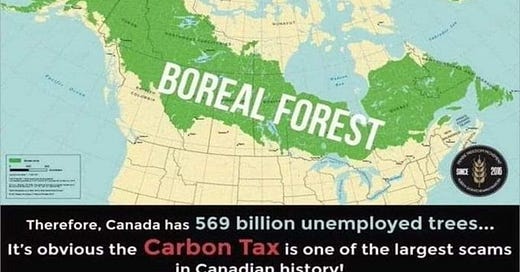Economic and Environmental Concerns with Net-Zero Policies
Proposing a Net-Zero Alternative: Soil Regeneration
Economic and Environmental Concerns with Net-Zero Policies
Net-zero policies, which aim to eliminate or offset all greenhouse gas emissions, are often promoted as essential for addressing climate chan…
Keep reading with a 7-day free trial
Subscribe to KICLEI to keep reading this post and get 7 days of free access to the full post archives.




